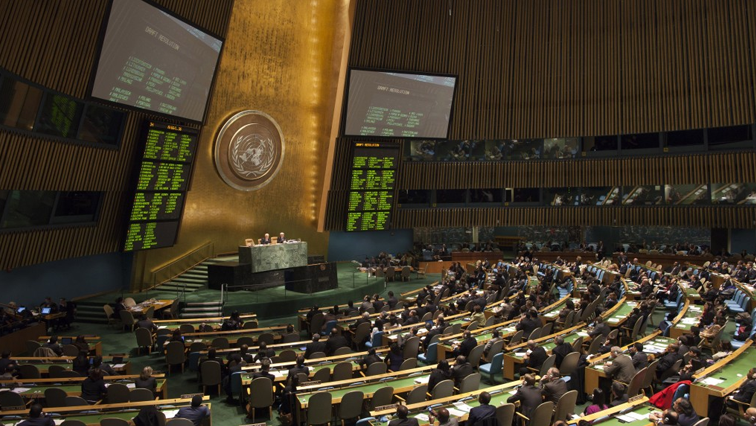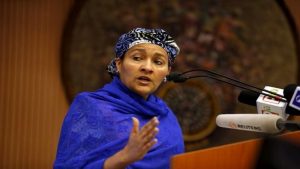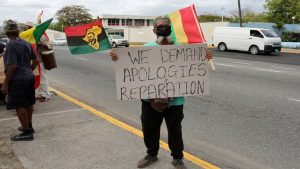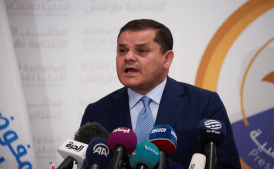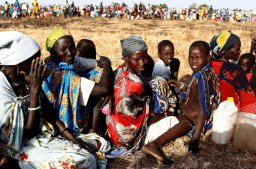The international community’s inability to prevent and resolve conflict is at the root of the estimated 17 000 migrants and refugees currently being held in detention centers in Libya.
That was the view of the High Commissioner for Refugees in a briefing to the United Nations Security Council that convened an urgent session to address questions of modern-day slavery and human trafficking in the country following news reports last week of African migrants being sold in slave markets for as little as 400 dollars each.
Council members have expressed their outrage with several calling for a collective statement condemning the practice.
There are pictures of African migrants in detention centres that have shocked the conscience of the international community.
The Security Council springing into action as outrage grows at the images of black people in chains, some sold as slaves.
High Commissioner for Refugees Filippo Grandi says:”Compelled to flee, but legal pathways to safety, refugees are exposed to appalling harm, together with migrants moving along the same routes – including torture, rape, sexual exploitation, slavery and other forms of forced labour. These proliferate in space where governance is weak and transnational criminal networks take root, spanning countries and even continents.”
Libya has become a major transit hub for migrants and refugees, mainly from sub Saharan Africa, who are trying to reach Europe by any means possible.
They often use illegal trafficking networks that promise to smuggle them onto ships that cross the Mediterranean.
But with increased security along the high seas and European migration agreements curbing these crossings, these desperate souls find themselves stuck in a country that has itself not known peace since the ouster of Muammar Gaddafi in 2011.
“I have called for 40 000 additional resettlement places in the 15 countries affected by these movements. To date, we have indications of just 10500 places, an encouraging but still insufficient number.”
The International Organisation for Migration’s Director General William Lacy Swing says they are ready to empty the detention centres in Libya but will need assurances from both the Libyan and the sources country governments to get voluntary repatriation underway.
“I think frankly that all of the elements are there now. We’ve had good discussions with the African Union President, with the High Representative of the EU; everybody seems to agree that it can be done. ”
“What we plan to do and hope to do, IOM together with our traditional partner UNHCR is to try to empty the detention centers, about 15 000 people still in them, these are the government control ones, about 30 of them, we don’t know how many of the militia groups have centers, we know they do, but let’s focus on the government effort now because we will need Libya’s help.”
Council members are expected to release a formal statement later and have not ruled out the imposition of sanctions.
Ethiopia’s Ambassador Takeda Alemu says:”The video clips circulating around the social media and the harrowing stories of some of the African refugees and migrants who describe their suffering and pain in the detention camps at the hands of human traffickers and smugglers have sent shock waves across the continent and beyond.”
French counterpart Francois Delattre says:”This hinges on greater cooperation with the Libyan authorities, this also hinges on an intractable fight against impunity, including through the international criminal court and through the imposition of sanctions against all individuals and entities who contribute to these heinous acts.”
The United Nations-recognized government in Libya has promised to bring the perpetrators of these crimes to justice.
Click video below:


